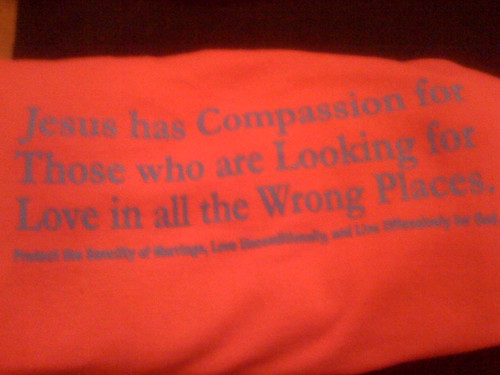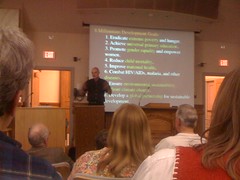.jpg) At the Eastern District Conference, our main speaker was Dave Kinnaman. First, I’d like to say that I loved that our district invited him. But I am a skeptical soul by nature, so I was suspicious that he wouldn’t be as proactive as his research in UnChristian indicated. In the back of my mind, I was concerned that he wouldn’t take advantage of the opportunity to say to a bunch of pastors in the Northeast that according to the research, we have a serious problem communicating the crux of Christ’s message to young people. But this became yet another reason why we shouldn’t pay too much attention to the skeptics.
At the Eastern District Conference, our main speaker was Dave Kinnaman. First, I’d like to say that I loved that our district invited him. But I am a skeptical soul by nature, so I was suspicious that he wouldn’t be as proactive as his research in UnChristian indicated. In the back of my mind, I was concerned that he wouldn’t take advantage of the opportunity to say to a bunch of pastors in the Northeast that according to the research, we have a serious problem communicating the crux of Christ’s message to young people. But this became yet another reason why we shouldn’t pay too much attention to the skeptics.
He did bring the bad news. As you may know, the first line of his book UnChrisitan reads, “Christianity has an image problem”. I think it takes some …. uhh, courage (yes the 5 letter word I was looking for was courage) to travel around and say what he’s saying. What else can you say about a young guy who stands in front of a lot of traditional pastors and tells them that the research among young non-Christians he has conducted as led him to several conclusions? Christians are hypocritical, homophobic, judgmental, and the greatest issue is their superficiality.
And he said it wearing a button-up shirt and jeans. He said the airline lost his luggage and aside from being skeptical, though I have no reason to disbelieve it, I’m pretty sure he was just going to wear another pair of jeans. I say that because in some of our conservative churches, if you have something important to say, you need to be wearing a tie to be heard. I was encouraged that many of our pastors were dressed down as well and there really was a relaxed atmosphere. But I guess that’s how it was when it’s not Sunday.
My senior pastor heard him. He told the church this past week that he appreciated what was said and highlighted what Dave said about the need in being “spiritual entrepreneurs”. There’s a lot to say there, maybe for another day.
Kinnaman also said that the church’s biggest problem is its superficiality. I appreciated that as one who is guilty of it and as one who has been burned by it. I recommend picking up a copy of the book. It’s a great resource to be familiar with.










 I appreciate a lot of what Chuck Colson says, can’t stand some of it, what can you do?
I appreciate a lot of what Chuck Colson says, can’t stand some of it, what can you do?




Recent Comments